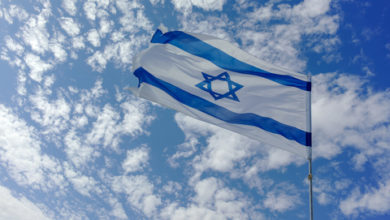“And as to Esau…”
The words of the Elijah of Vilna [by his Hebrew acronym Gra (“HaGaon Rabbenu Eliyahu”)] about the first verses in this week’s Haftarah are quite surprising: “Is not Esau a brother to Jacob, and I have loved Jacob? But as to Esau I have hatred.” [Malachi 1:2-3]. Just at this place, where the passage emphasizes the differences between Israel and the other nations, the GRA sees a hint of hidden companionship. “As to Esau – what is secondary with respect to Esau” [Likutim, at the end of the chapter on the tempest of Elijah]. That is, in his deepest roots Esau has a positive basis which is not to be hated. This is how Rav Kook reacted:
“With respect to foreign beliefs, the goal of the light of Israel is not to destroy them and swallow them up, just as we do not plan general destruction of the world, but rather to mend them and raise them up, to remove their impurities, so that as a matter of course they will join together with the source, Israel. And the brotherly love between Esau and Jacob, as that between Isaac and Ishmael, will overcome all of the tumult which evil dragged along, and will transform them into light and eternal kindness.” [Igrot Hare’iyah volume 1, 142].
This broad outlook, which sees beyond the current hatred an aspiration for mending the world, is based on the words of Malachi himself later on: “And your eyes will see, and you will say: G-d will grow beyond the border of Israel.” [1:8]. And this is Rav Kook’s response to the approach that views Judaism as an expression of national egotism: “Block out the erroneous thought which confines the highest level of Divine awareness to a limited heritage in a unique geographical area and within a specific kingdom” [Orot, page 115].
This approach goes so far as to attach monotheistic faith to nations which were absolute idol worshipers in the time of the prophet. “For from the east, where the sun rises, until it sets, My name is great among the nations. And in every place incense is sacrificed to me together with a pure Mincha sacrifice. For My name will be great among the nations, G-d says.” [1:11]. Clearly, this does not apply to the idolatrous rituals, which are an abomination to G-d, but rather to the hidden meanings at the depths of the religious experience of the other nations. This is in need of refinement so that it will display its internal point of truth (see Rambam, Hilchot Avodah Zara 1:3). Here is how Rabbi Yehuda Halevi expressed, in the introduction to the Kuzari, the high level of respect that Judaism feels for the serious approach of the idol worshipers: “Your intentions are desirable in G-d’s eyes, but your actions are not.”
With this in the background, Malachi’s words as he continues are very harsh: “But you desecrate Me!” [1:12]. The main demand from the nation of Israel is to sanctify the name of heaven in the entire world. Sanctifying the name of G-d raises the value of the words of Torah which are disseminated by the senior people of the nation, for by their deeds the name of G-d is made holy: “His mouth has in it a Torah of truth, and no evil crosses his lips, he goes with me in peace and on a level plain, and he has brought many people back from sin. For the lips of the Kohen will guard over knowledge, and they will demand Torah from his mouth, for he is an angel of the G-d of Hosts.” [2:6-7].
Source: “NOTES FROM THE HAFTARAH” – a biweekly column in Shabbat B’Shabbato (Zomet Institute) See: http://www.zomet.org.il/eng – Toldot 5776, issue 1598.




Thank you for such wonderful insight to thee haftarah . What is Gra?
The words of the Elijah of Vilna [by his Hebrew acronym Gra (“HaGaon Rabbenu Eliyahu”)] about the first verses in this week’s Haftarah are quite surprising: “Is not Esau a brother to Jacob, and I have loved Jacob? But as to Esau I have hatred.”
https://en.wikipedia.org/wiki/Vilna_Gaon